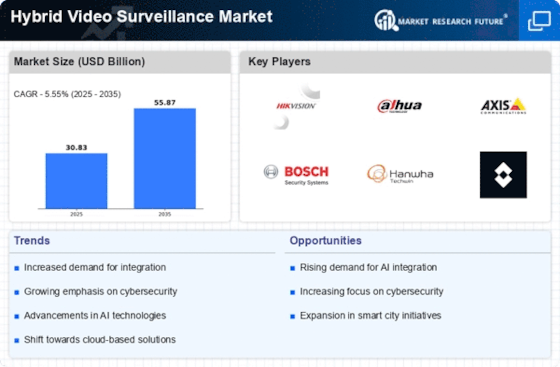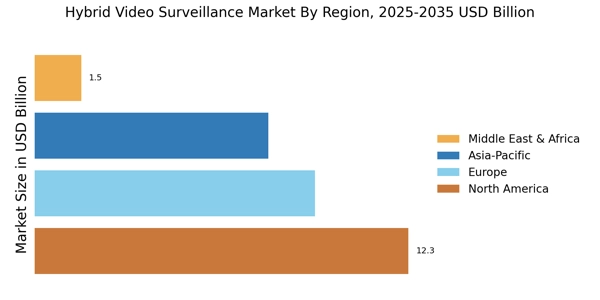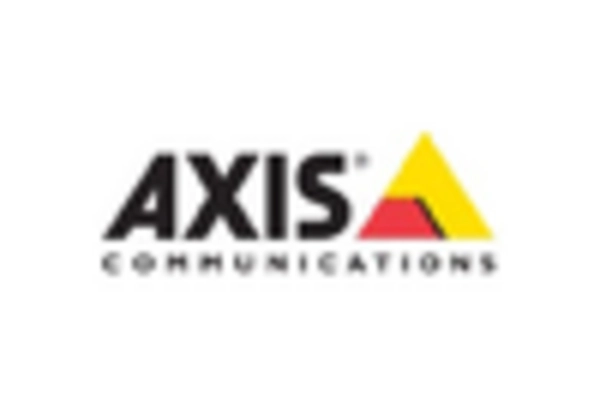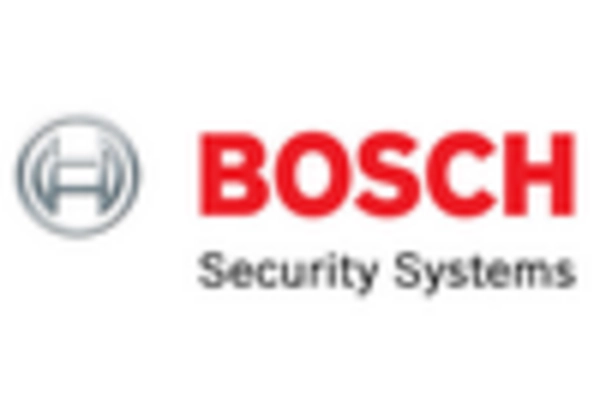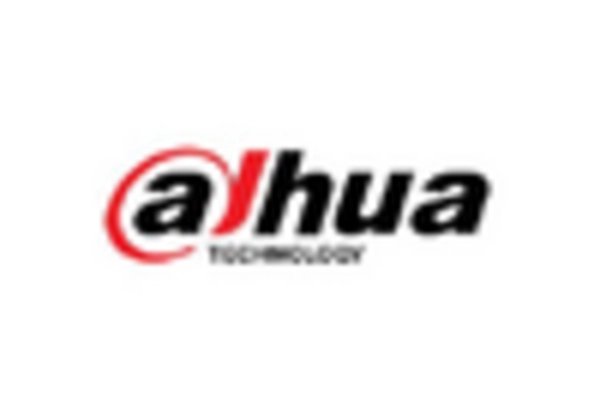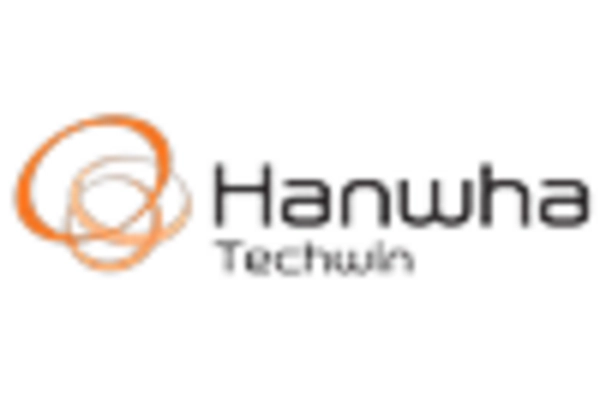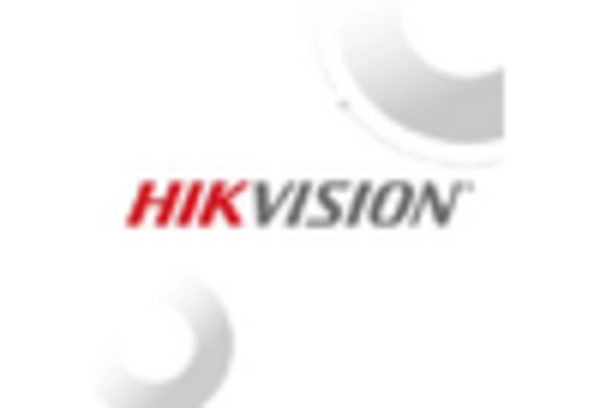Growing Adoption of Smart City Initiatives
The Hybrid Video Surveillance Market is benefiting from the growing adoption of smart city initiatives. Urban areas are increasingly integrating advanced technologies to enhance public safety and improve the quality of life for residents. Hybrid video surveillance systems are being deployed as part of these initiatives to monitor traffic, manage crowds, and ensure public safety in real-time. The integration of surveillance with other smart technologies, such as traffic management systems and emergency response frameworks, is creating a more cohesive approach to urban security. As cities invest in these technologies, the hybrid video surveillance market is projected to expand significantly, with estimates suggesting a potential market size of over USD 25 billion by 2027. This trend highlights the critical role of surveillance in the development of safer and more efficient urban environments.
Rising Awareness of Crime Prevention Strategies
The Hybrid Video Surveillance Market is witnessing a rise in awareness regarding crime prevention strategies among businesses and communities. As crime rates fluctuate, there is an increasing recognition of the need for proactive measures to deter criminal activities. Hybrid video surveillance systems, which combine traditional and modern technologies, are being adopted as effective tools for crime prevention. Organizations are leveraging these systems not only for monitoring but also for analyzing patterns and trends in criminal behavior. This proactive approach is likely to enhance the effectiveness of security measures, leading to a projected market growth of around 10% annually. The emphasis on crime prevention is reshaping the landscape of the hybrid video surveillance market, as stakeholders seek solutions that provide both immediate security and long-term safety benefits.
Increasing Demand for Enhanced Security Solutions
The Hybrid Video Surveillance Market is experiencing a notable surge in demand for advanced security solutions. This trend is largely driven by the increasing need for comprehensive surveillance systems that can integrate both analog and digital technologies. Organizations across various sectors, including retail, transportation, and critical infrastructure, are investing in hybrid systems to enhance their security posture. According to recent estimates, the market is projected to grow at a compound annual growth rate of approximately 12% over the next five years. This growth is indicative of a broader recognition of the importance of robust security measures in mitigating risks associated with theft, vandalism, and other criminal activities. As such, the hybrid video surveillance systems are becoming essential tools for organizations aiming to safeguard their assets and ensure the safety of their personnel.
Technological Advancements in Surveillance Equipment
Technological advancements are playing a pivotal role in shaping the Hybrid Video Surveillance Market. Innovations in camera technology, such as high-definition imaging, low-light capabilities, and intelligent video analytics, are enhancing the effectiveness of surveillance systems. These advancements allow for better image quality and more accurate detection of suspicious activities. Furthermore, the integration of Internet of Things (IoT) devices is facilitating real-time monitoring and data collection, which is crucial for timely decision-making. The market is witnessing a shift towards smart surveillance solutions that leverage these technologies, potentially leading to a market valuation exceeding USD 20 billion by 2026. This evolution reflects a growing recognition of the need for sophisticated surveillance systems that can adapt to the dynamic security landscape.
Regulatory Compliance and Data Protection Initiatives
The Hybrid Video Surveillance Market is increasingly influenced by regulatory compliance and data protection initiatives. Governments and regulatory bodies are implementing stringent guidelines to ensure the responsible use of surveillance technologies. This has led organizations to adopt hybrid video surveillance systems that not only meet security needs but also comply with legal requirements regarding data privacy. For instance, regulations such as the General Data Protection Regulation (GDPR) in Europe have prompted businesses to invest in systems that provide secure data handling and storage. As a result, the demand for hybrid solutions that offer both security and compliance is expected to rise, potentially driving market growth by 15% annually. This trend underscores the importance of balancing security measures with ethical considerations in the deployment of surveillance technologies.

